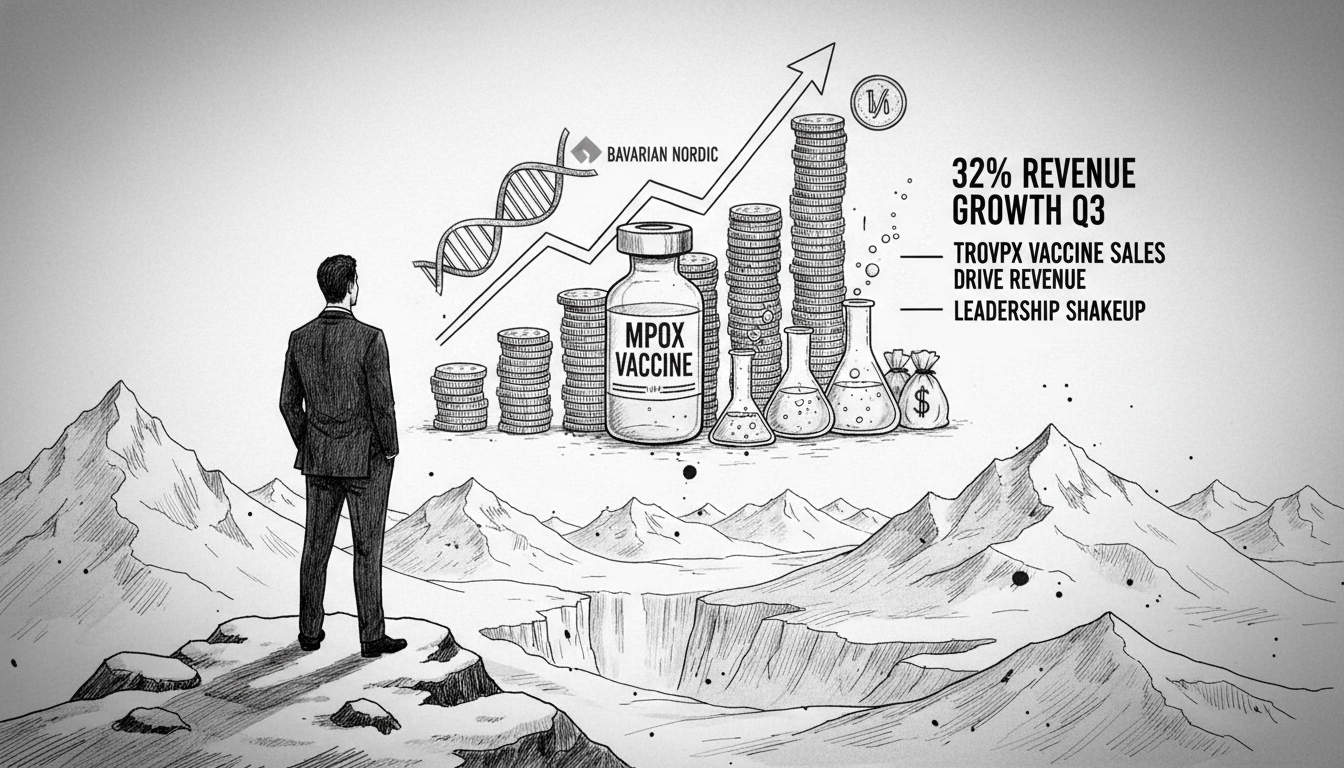Danish vaccine manufacturer Bavarian Nordic reported strong financial results for the third quarter, with revenue reaching 1.8 billion Danish kroner. The company released its earnings report on Friday morning, showing a substantial 32 percent increase compared to the same period last year. This growth demonstrates the company's continued market strength in the pharmaceutical sector.
The primary driver behind this impressive performance comes from sales of the company's mpox vaccine. This product, previously known by the Danish name for monkeypox, generated 788 million kroner in the third quarter alone. This represents an increase of 263 million kroner from previous periods, indicating strong demand for the vaccine in international markets.
Paul Chaplin, the company's Chief Executive Officer, highlighted another important development in the earnings statement. He emphasized the growing sales of Bavarian Nordic's travel vaccines, particularly the rabies vaccines marketed under the names Rabipur and RabAvert. These products achieved sales of 646 million kroner in the third quarter, marking a 23 percent increase from previous periods.
Our travel vaccines have demonstrated continued strength and have contributed to our best quarter yet for this business area, Chaplin said in comments accompanying the financial report. The company's leadership appears confident in their current product portfolio and market strategy.
Alongside the quarterly results, Bavarian Nordic provided updated guidance for its full-year performance. The company now expects to land around the lower end of its previously announced revenue range of 6 to 6.6 billion kroner. This adjustment suggests some caution despite the strong quarterly results, possibly reflecting market uncertainties or competitive pressures.
The earnings release comes amid significant leadership changes at the Danish pharmaceutical firm. Just one day before the financial report, Chairman Luc Debruyne announced his resignation from the company's board. This leadership transition follows the collapse of a potential acquisition deal that had been under consideration.
Two capital funds, with support from both Bavarian Nordic's board and daily management, had attempted to acquire the company. However, the offers presented failed to convince enough shareholders to approve the transaction. The failed acquisition attempt reveals shareholder confidence in the company's current direction and independent strategy.
After careful reflection on both the process and outcome of the recent acquisition attempt, I have decided to step down to give Bavarian Nordic's board the opportunity to focus on the company's next development phase, Debruyne stated on Thursday.
In Friday's earnings commentary, CEO Paul Chaplin interpreted the shareholder rejection of the acquisition offers as support for the company's current strategic direction. The management remains fully committed to this strategy, according to Chaplin's statements. This situation illustrates how pharmaceutical companies must balance growth opportunities with shareholder expectations in a competitive global market.
The company's performance reflects broader trends in the vaccine industry, where specialized products like travel vaccines and outbreak-response vaccines represent important growth areas. Bavarian Nordic's experience shows how midsize pharmaceutical firms can compete effectively by focusing on niche markets and responsive vaccine development.

